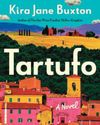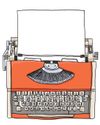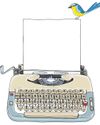
Regardless of what you write, readers have the same expectation-they insist on stories with language that demonstrates economy, effectiveness, and energy. While entire how-to books could be written about each of those goals, this article focuses on the 10 most impactful story-improving editing tips I've shared with students and clients.
With that, let's examine my 10 best editing tips. Apply these as needed to your own writing, regardless of literary medium or genre.
1: DIVIDE AND CONQUER
Many writers find editing to be daunting. It's understandable there are so many ways for words, phrases, sentences, and paragraphs to go wrong. But don't despair. Harold Underdown, Executive Editor at Kane Press, offers this wise advice: "When looking for words to cut, don't just do one pass through your manuscript. Plan multiple passes, each for a different category-adverbs, empty words, words you use too often. In each pass, don't edit, just identify highlighting is good. Then work through the manuscript one last time, considering and deleting or replacing all of the words you highlighted."
In short, revise in stages to avoid being overwhelmed.
2: REMOVE REDUNDANCY
The first draft of a story is where authors discover the story for themselves they're the only audience at that point. Given that, it's easy to see why overwriting is commonplace in early drafts. When it's time to edit, though, redundancy in meaning should be addressed.
The gas line explosion at the Oakview Senior Center was a horrible tragedy.
Building the birdfeeder so close to the house was an unintentional mistake.
هذه القصة مأخوذة من طبعة May - June 2023 من Writer’s Digest.
ابدأ النسخة التجريبية المجانية من Magzter GOLD لمدة 7 أيام للوصول إلى آلاف القصص المتميزة المنسقة وأكثر من 9,000 مجلة وصحيفة.
بالفعل مشترك ? تسجيل الدخول
هذه القصة مأخوذة من طبعة May - June 2023 من Writer’s Digest.
ابدأ النسخة التجريبية المجانية من Magzter GOLD لمدة 7 أيام للوصول إلى آلاف القصص المتميزة المنسقة وأكثر من 9,000 مجلة وصحيفة.
بالفعل مشترك? تسجيل الدخول

What Is Your Story Question?
Revision and editing advice to take your first draft to the next level.

Writing for the People We Hope to Become
Elisa Stone Leahy's new middle-grade novel, Mallory in Full Color, tackles the in-between moments of adolescence, when who we are and who we want to become collide.

Creating Community
Whether hot off the presses or on the shelves for years, a good book is worth talking about.

Pat Barker
The Booker Prize-winning author of Regeneration shares the role characters play in developing novel ideas and explains what appeals to her about reimagining mythology.

How to Write in Different Genres
Emiko Jean and Yulin Kuang share tips and strategies for how they successfully write in different genres and mediums.

The Shortest Distance Between Two Points
Ten tips for writing a novel with 100-word stories.

Mayfly Marketing
How to sell your novel in a short-attention-span world.

"You'll be a great essay".
How to write six types of personal essays by finding the funny in your life.

The Idea Factory
Tired of staring at an empty screen? Unlock your inner fiction generator with these surprising inspiration techniques.

Seinfeld Was Right: That's a Story
Use mundane moments from everyday life to create stories that pack a punch.